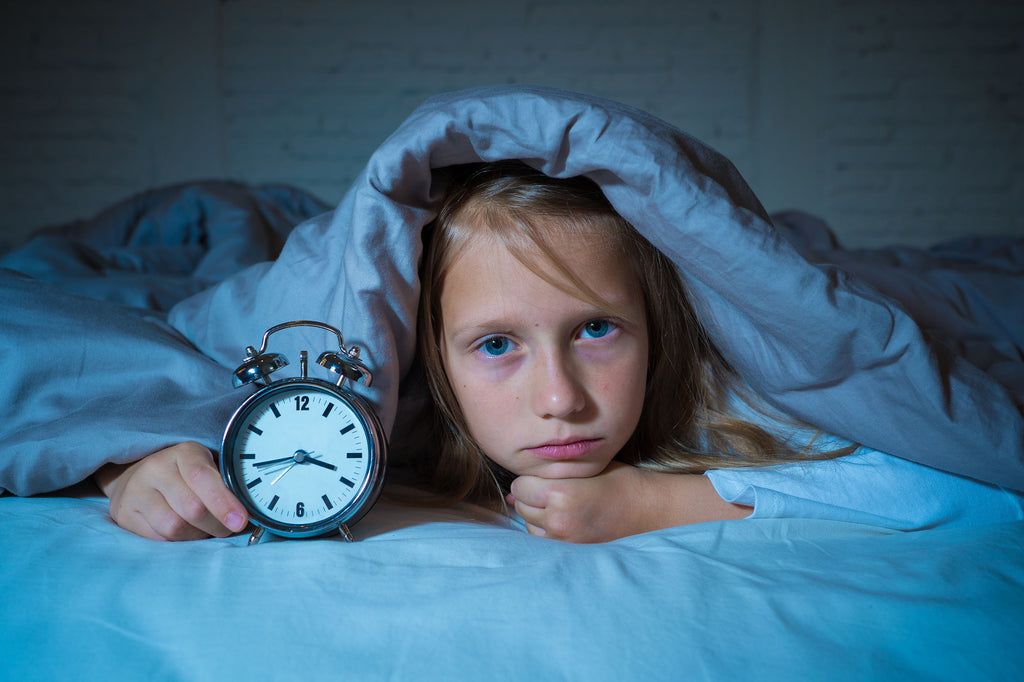
There is nothing like waking up after a good night’s sleep. You feel rested, energized, and ready to take on the day! On the other hand, failing to get a good night’s rest can leave you feeling irritable, lethargic, and sleepy. Unfortunately, a full 8 hours of sleep is hardly guaranteed for anyone but can be especially difficult for Autistic individuals.
It is not uncommon for children with Autism Spectrum Disorder (ASD) to have sleeping issues. In fact, one study found that 80 percent of children with ASD have difficulty falling asleep and/or staying asleep. Not being able to sleep well can impact or worsen other symptoms of ASD, such as repetitive and restrictive behaviors throughout the day, creating a cycle that feels like it’s impossible to break.
Today, we will discuss the sleep habits of children with ASD and dive into potential solutions and supplements that may help improve your child’s sleeping habits.
Sleeping issues & ASD
If you are a parent, you know that all children can have difficulty getting to bed, but sleep issues are twice as common in children with ASD and often can cause disruption of sleep for the rest of their families. The most common sleep disorder found in Autistic children is insomnia - difficulty falling asleep, staying asleep, or getting back to sleep.
This is so concerning to doctors, researchers, and parents because this lack of sleep, specifically REM, can have an impact on brain function, which can exacerbate other features of Autism like communication, focus, eating habits, and social interactions and communication. Rapid-eye movement (REM) sleep occurs during the dream phase of sleep and is thought to be a key component of memory retention and learning, which is why it is often hailed as the most critical part of sleep. When this cycle has not been completed, feelings of grogginess, lethargy, and irritability can often kick in.
Why Do Sleep Problems Occur In Individuals With ASD?
Although researchers are not one hundred percent sure as to why sleep problems are so common in children with ASD, some believe that these sleep issues could stem from sensory sensitivities in Autistic children. As we have previously discussed, sensory sensitivities play a considerable role in ASD and can affect how your child responds to loud sounds, bright or moving lights, and even touch or taste. Other studies have suggested that individuals with Autism can carry mutations that affect the natural levels of melatonin - the hormone that controls sleep.
Melatonin and Autism
So is there a connection between low levels of melatonin and Autism? Researchers still need additional evidence and studies before they can say with one hundred percent certainty, but melatonin supplementation can be effective for some children. Before we get into that, let’s discuss what melatonin actually is.
Melatonin is a natural hormone produced from the brain’s pineal gland; its primary function is to tell your body when to go to sleep and when to wake up. Melatonin levels are typically higher before you go to bed and when it is dark and lower in the morning when the light is bright.
Physicians often recommend melatonin for parents to administer to their children with ASD to help with sleep problems. Most children do not have issues when taking melatonin but always speak to your doctor before starting any new Autism supplements, vitamins, or medication.
If you get the okay from your doctor, they will most likely recommend that your child starts on a low dose of melatonin supplements (.5mg to 1mg are the lowest). If you do not see any changes in your child’s sleep patterns, then you may want to consult your doctor again about increasing the dosage.
As we all know, Autism is a lifelong disorder that does not have a “cure.” It is a new journey for most parents, and we are still learning new things about it every single day. It must be noted that sleep issues do not cause Autism, and similarly, better sleep will not “cure” it. Melatonin supplementation is not a cure-all miracle that will instantly improve the sleep quality of your child, but it could be the first step to better sleep and possible improvements of other ASD symptoms.
